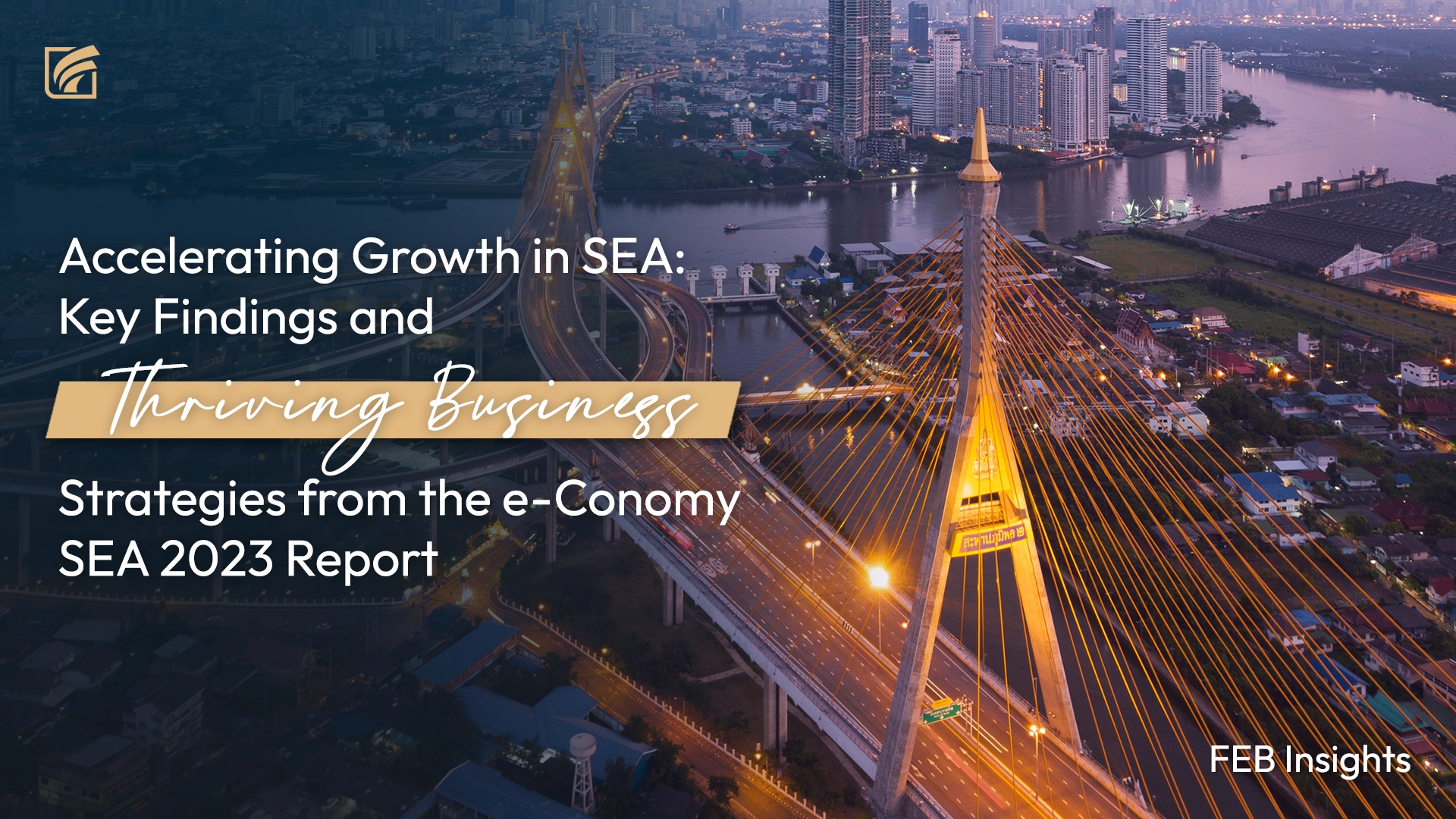A revolutionary transformation is taking place in the dynamic realm of Southeast Asia’s digital economy. According to the e-Conomy SEA 2023 report, a joint endeavor by industry leaders Google, Temasek, and Bain & Company, the landscape is primed for remarkable expansion. With an estimated transaction value of $218 billion, signifying a notable 11% year-on-year surge, the region is embarking on what the report refers to as its ‘Digital Decade.’ This period promises unprecedented growth and innovation.

Southeast Asia’s Digital Economy: A Thriving Landscape
The digital economy in Southeast Asia is undergoing strong growth, with an estimated revenue of $100 billion expected by 2023 [1]. This remarkable surge is driven by various factors, such as the rising usage of the internet, the widespread embrace of smartphones, and the continuous expansion of the middle-income group [2].

Image generated from promeai depicting rapid evolution of Southeast Asia’s digital economy.
Key Drivers of Growth
1. The report highlights the essential role of increasing internet penetration in propelling the growth of the digital economy. As more people gain access to the internet, the potential consumer base expands, creating significant opportunities for businesses.
2. The increasing adoption of smartphones is another critical factor driving the expansion of the digital economy. With smartphones becoming more widespread, consumers have easier access to online services and contribute to the thriving digital ecosystem.
3. The growing middle class plays a crucial role in shaping the digital landscape. As more individuals join the middle class, disposable income increases, leading to a higher demand for digital services and products.
Insights from the e-Conomy SEA 2023 Report
The e-Conomy SEA 2023 report explores the intricacies of the digital transformation happening in Southeast Asia, offering valuable insights for businesses seeking to navigate and take advantage of the growing opportunities.
1. Accelerating Trends in Online Commerce
Online commerce has become a dominant force in Southeast Asia’s digital economy. The report highlights a thriving ecosystem for online shopping, signalling a significant shift in consumer behavior. Businesses can capitalize on this trend by optimizing their digital platforms, enhancing user experiences, and adopting innovative strategies to engage with c ustomers.
2. Rise of Valuable Consumers
The report identifies the rise of valuable consumers as a prominent trend. Understanding and targeting this demographic can be a game-changer for businesses. Customizing products and services to cater to the preferences of these valuable consumers can result in increased loyalty and greater profitability.

Image generated from Image Art
3. The Adoption of Digital Services is on the Rise
The utilization of digital services, such as online streaming and digital payments, is experiencing a significant increase. It is crucial for businesses to acknowledge the potential within this realm and consider forming strategic partnerships to enhance their range of services. Given the rapid evolution of the digital landscape, businesses must remain adaptable in order to take advantage of emerging trends.
4. The Prominence of Artificial Intelligence (AI)
The e-Conomy SEA 2023 report sheds light on the pivotal role played by Artificial Intelligence (AI) in shaping the digital landscape of the region. AI is increasingly being integrated into various aspects of business operations, ranging from customer service chatbots to data analytics. It is imperative for businesses to explore AI applications that are relevant to their industry in order to improve efficiency and maintain competitiveness.
Strategies for Thriving in Southeast Asia’s Digital Economy
To thrive in today’s highly competitive business environment, organizations must embrace strategic methods to achieve long-term growth.
1. Pathways to Profitability
In order to attract investments, digital companies must carefully outline their strategies for achieving profitability. This entails a dual emphasis on both monetization and cost optimization. By gaining a deep understanding of the revenue streams within their business models and implementing effective cost management practices, companies can establish a strong foundation for sustainable growth [3].
2. Expanding Reach
Expanding one’s reach is crucial for businesses aiming to succeed in the diverse markets of Southeast Asia. This expansion entails targeting untapped segments of the population and venturing into new geographical markets. To achieve successful expansion, it is vital to forge strategic partnerships, implement localization strategies, and foster innovation. These elements play a pivotal role in driving growth and capturing new opportunities in the region [4].
3. Adaptability and Innovation
To thrive in the ever-changing digital realm, companies must possess adaptability and creativity. Remaining at the forefront necessitates keeping abreast of emerging technologies, comprehending the shifting patterns of consumer behavior, and being open to exploring novel business models[5]. The capacity to swiftly innovate and adjust has become a defining characteristic of prosperous enterprises in the digital age.
A Call to Action: Leading the Charge in Southeast Asia’s Digital Landscape
The digital landscape of Southeast Asia is full of promise and constantly evolving, with businesses at the forefront strategically embracing artificial intelligence (AI). The e-Conomy SEA 2023 report acts as a guide, providing businesses with the necessary roadmap to successfully navigate this changing terrain.
As we enter the “Digital Decade,” it is no longer enough for businesses to simply adapt to change. Those that harness the transformative power of AI are actively shaping the future of Southeast Asia’s digital landscape.
In this era of immense opportunity, businesses are encouraged to remain agile, closely monitor emerging trends, and maintain a steadfast commitment to innovation. By doing so, they position themselves not only to thrive but to take the lead in Southeast Asia’s thriving digital economy.
Don’t miss out on the opportunity to learn more about our services! Contact us at [email protected] and let’s discuss how we can help your business achieve its goals.






